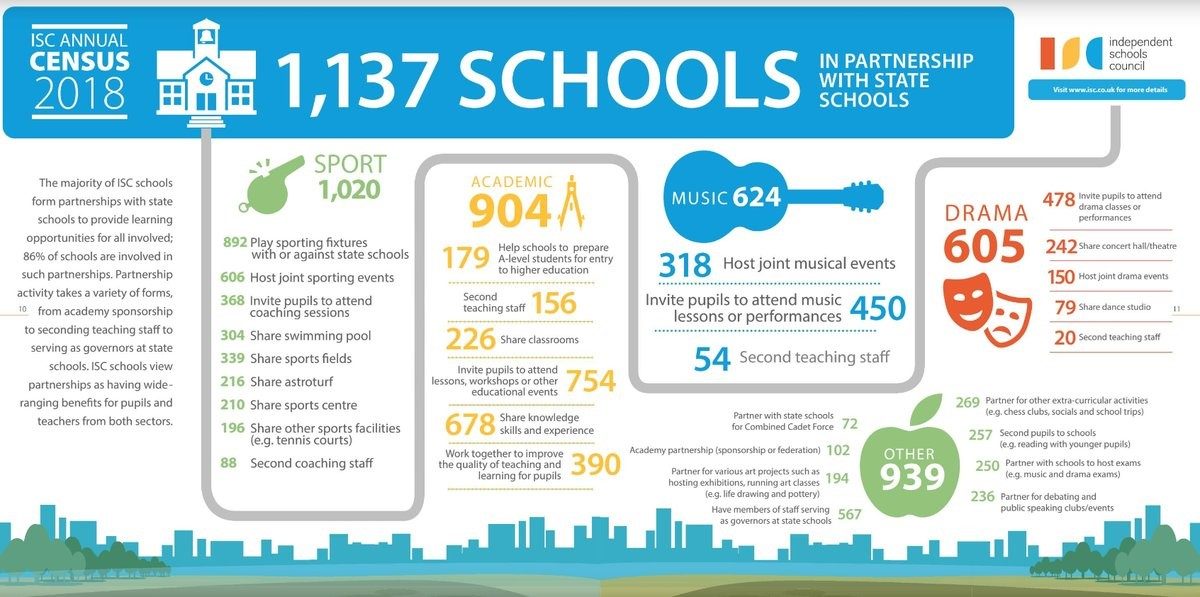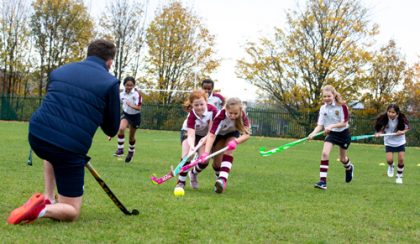Practice what you preach. Twice this week I have been out for a dash (I’m building-up my part here, let’s be honest, ‘pedestrian jog’ might be more apt) over the road from school around Lister Park. I might not cut much of an athletic jib these days but I enjoy exercise and Lister Park is a hidden gem in Bradford. Running, mountain biking and such like keep me sane and marginally less grumpy. Meanwhile at BGS we routinely extol the virtues of physical activity as part of a healthy lifestyle. Balance is everything. We had a bake sale this week and Christmas mince pies are everywhere in abundance; tomorrow I will visit Lister Park again, or head up through Heaton Woods. Yin and yang. Equilibrium. Practice what you preach.
Protecting PE, games, sport, physical activity, call it what you like, in the UK school curriculum is becoming increasingly difficult for Heads facing various pressures. Please try not to think critically of our school leaders as you read on, but the following reflects an uncomfortable truth. Only three per cent of Year 5 pupils, ages 9-10, are doing enough exercise, the Times Educational Supplement reported recently. More specifically the TES said that just one per cent of girls and five per cent of boys in the year group are getting the recommended hour of activity every day.
The study, conducted by Exeter and Plymouth Universities, gathered data for 807 Year 5 children in 32 schools in the South West of England using an activity-tracker watch for seven days. “Our findings suggest that just under a third of children are achieving an average of 60 minutes per day, but only 3.2 per cent meet the 60-minute target every day,” said Dr Lisa Price, University of Exeter. These data contribute to a growing national picture of increasingly poor child health. Earlier this autumn it was reported that severe obesity among Year 6 students has climbed by over a third in the past 11 years to 4.2 per cent, the highest rate ever. In Reception, 12.8 per cent of children in deprived areas were identified as being as obese, as opposed to 5.7 per cent in wealthier areas, according to the National Child Measurement Programme (NCMP), which tracks the height and weight of primary age school children in England. Loss of school fields, poor diet, electronic device fascination/addiction, the Government’s EBacc school performance metric, blamed for the prioritising of some subjects over the others, including PE, are all cited as causes of these worrying trends.
By virtue of our independence, schools like BGS are able to do something different. We benefit from greater freedom to maintain, as far as is practicable, the end points of curriculum breadth, foster the arts, sport and maintain a classically liberal educational offering. We also recognise and lament the narrowing of the curriculum that is occurring elsewhere, this is not what any of us would want.
BGS is a member of the Independent Schools Council (ISC) who collect data on our collective activity. In their 2018 census report, ISC note that 1020 member schools are in a sports-based partnership with a local state sector counterpart. 606 of us hosted a joint sporting event, shared a swimming pool (304), sports field (339), astroturf (216), sports centre (210), and 368 ISC schools invited state sector pupils to attend coaching sessions. BGS does these things and this year a colleague has been appointed to specifically lead on PE outreach to grow this activity further as part of our ongoing redevelopment of BGS sport. New investment includes a £4m hockey/cricket/netball/tennis facility which, you might have guessed it, will increase our capacity to support greater partnership activity going forwards.

None of this is written with any sense of triumphalism and I do not like differentiating between independent and state schools. We are part of a blend of schools in the UK, all on the same map, at our best when we work together and benefit from each other’s strengths. At the moment there is a responsibility upon the independent sector to support our neighbours to get kids moving a bit more and we welcome that opportunity. Adults were born to move too; Lister Park is calling. Enough preaching.
“We benefit from greater freedom to maintain, as far as is practicable, the end points of curriculum breadth, foster the arts, sport and maintain a classically liberal educational offering.”
